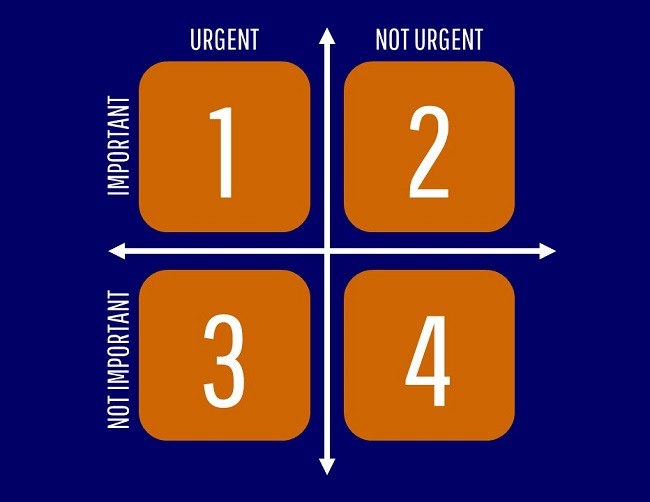Having trouble managing your time effectively? By thinking about how you spend your days, you’ll be able to focus more on what’s really important for your business.

If you’re like many time-poor accountants, you’ve probably found that managing regulatory change while keeping up with business-as-usual activities doesn’t leave much time for actively growing your business.
If this sounds like you, it’s probably a good idea to look at how you manage your time. By not allowing time for business development activities, you may struggle to meet your long-term business goals. Even worse, poor time management can lead to burnout.
So how can you spend less time on crisis control, and more time on activities that will help your business grow — and maybe even give you more downtime too?
A simple but effective tool
One of the best time management tools around is the Eisenhower Decision Matrix. Created by US president Dwight D Eisenhower, the matrix was later popularised in business educator Stephen Covey’s bestseller The Seven Habits of Highly Effective People.
By using this simple tool, you can better distinguish urgent tasks from important ones — which are often not the same thing. It will also help you recognise which activities usually grab your attention first, but also end up consuming too many of your working hours.
Armed with this information, you can then find ways to spend more time on the important, high-value, tasks — the ones that allow you achieve your long-term business objectives. You may also be able to minimise the urgent tasks and find there are some you don’t need to do at all.
Here’s how it works.
Classify your tasks
Use the Eisenhower Decision Matrix to divide your to-do list into four quadrants:
- Urgent and important: From meeting regulatory deadlines and conducting staff performance reviews to any actions needed to retain key clients — as well as things like family emergencies — these tasks will be your main focus whenever they arise.
- Important but not urgent: As well as your day-to-day activities, these include things like updating your firm’s business strategy and 90-day business plans, ongoing education and partner succession planning — in short, anything that supports your long-term objectives. This quadrant also includes self-care activities like exercise and relaxation, which you should schedule regularly in your diary.
- Urgent but not important: This includes immediately responding to emails, client calls and ad-hoc requests that could instead be managed by another team member. The ping of incoming emails, texts and instant messages all clamour for our attention, but they can often wait. And just because a task is important to someone else, that doesn’t necessarily mean it’s as important to you.
- Not urgent and not important: Scrolling through social media, chatting with colleagues or dealing with non-work tasks in work time can all eat into your day. While these distractions can help alleviate pressure, they should be kept to a minimum.
By mapping out your activities in these four quadrants over a few weeks, you’ll have a clear snapshot of how you’re spending your time.
Get to where you want to be
Aim to spend most of your time in the important but not urgent quadrant, where you can be at your most productive and creative. Here are four tips to get you there:
- Divide larger tasks up into smaller and more manageable ones at the outset, and complete a few each day. By allowing more time than you think you need, you’ll find that fewer tasks end up in the urgent and important quadrant.
- Diarise and schedule time for business planning, following up with clients, staff training and looking after your wellbeing. You can always reschedule if something urgent comes up, but don’t make a habit of it.
- Delegate tasks where possible. Not only will it free up more of your time, but it will allow your junior staff to develop their own skills and take on more responsibility. [Read Work Less, Delegate More]
- Delete tasks that aren’t necessary. Unsubscribe from emails you don’t read, and try to hold off your non-work tasks until after hours. Learn to say no to non-essential activities that take up your time but don’t support your business goals.
Once you learn to manage your time better, you’ll be able to focus more on building a successful and sustainable future for your business.